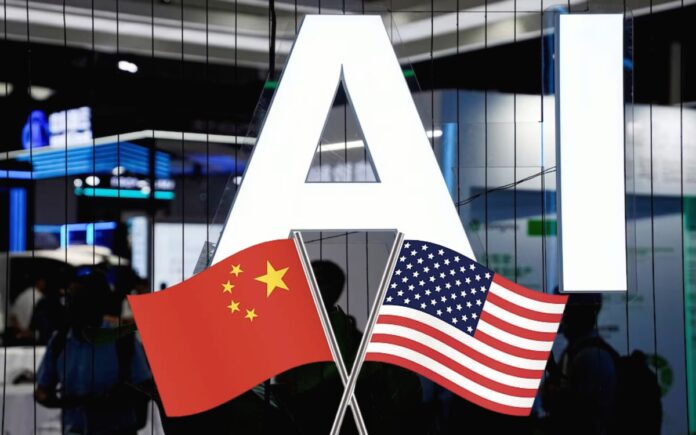Washington: The U.S. and China are set to convene in Geneva for discussions on advanced artificial intelligence, U.S. officials confirmed, emphasizing that while the talks aim to address risks associated with the emerging technology, Washington’s policies remain non-negotiable.
President Joe Biden’s administration has actively pursued engagement with China across various fronts to minimize misunderstandings between the two nations. In April, U.S. Secretary of State Antony Blinken and China’s Foreign Minister Wang Yi broached the topic of AI during discussions in Beijing, culminating in an agreement to hold their inaugural formal bilateral talks on the subject.
The State Department has been advocating for China and Russia to adopt similar declarations as the U.S., affirming that only humans, not artificial intelligence, should dictate decisions regarding the deployment of nuclear weapons.
“This is the first meeting of its kind. So, we expect to have a discussion of the full range of risks, but wouldn’t prejudge any specifics at this point,” stated a senior administration official, responding to inquiries about whether the U.S. would prioritize the nuclear weapons issue.
Also Read | Apple’s Upcoming iOS 18: A Deep Dive into AI-Powered Innovations
Highlighting concerns over China’s swift advancement in AI capabilities across civilian, military, and national security domains, the official underscored the importance of direct communication between Washington and Beijing to address these security implications.
“To be very clear, talks with Beijing are not focused on promoting any form of technical collaboration or cooperating on frontier research in any matter. And our technology protection policies are not up for negotiation,” emphasized the official.
According to reports by Reuters, the Biden administration intends to introduce safeguards for U.S.-developed proprietary AI models, such as those powering widely-used chatbots like ChatGPT, to protect the technology from potential exploitation by countries like China and Russia.
Another U.S. official briefed reporters, noting that while the U.S. and China are competing to shape AI regulations, there is also a hope to identify common ground where certain rules could be universally accepted.
Also Read | British Media Raises Alarm as Apple Considers Ad-Blocking in Safari
“We certainly don’t see eye to eye … on many AI topics and applications, but we believe that communication on critical AI risks can make the world safer,” expressed the second official.
Leading the discussions will be U.S. National Security Council official Tarun Chhabra and Seth Center, the State Department’s acting special envoy for critical and emerging technology, along with officials from China’s Foreign Ministry and state planner, the National Development and Reform Commission.
Meanwhile, U.S. Senate majority leader Chuck Schumer is gearing up to issue recommendations in the coming weeks to address AI risks, which will subsequently inform legislative actions. Schumer has emphasized the imperative for the U.S. to take the lead in crafting laws governing AI, citing competition with China and its differing objectives for the technology, including surveillance and facial recognition applications.
Chinese authorities have been emphasizing the necessity for the country to develop its own “controllable” AI technology.



